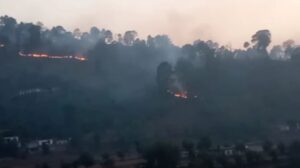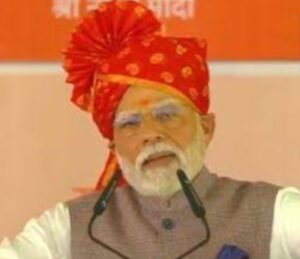PM Modi Grants Armed Forces Full Operational Freedom in Response to Pahalgam Terror Attack

On April 22, 2025, the serene meadows of Baisaran in Jammu and Kashmir’s Pahalgam turned into a scene of horror as terrorists, allegedly linked to Pakistan-based Lashkar-e-Taiba’s offshoot The Resistance Front, killed 26 civilians, mostly tourists, in one of the deadliest attacks in the region since the 2019 Pulwama strike. The brazen assault shattered the normalcy in Kashmir and escalated tensions between nuclear-armed neighbors India and Pakistan. In response, Prime Minister Narendra Modi has taken a decisive stance, granting the Indian armed forces “complete operational freedom” to determine the mode, targets, and timing of India’s retaliation. This article explores PM Modi’s bold directive, the strategic implications, and the latest developments following the Pahalgam terror attack.
PM Modi’s Directive: A Free Hand to the Armed Forces
On April 29, 2025, PM Modi chaired a high-level security meeting at his residence in New Delhi, attended by Defence Minister Rajnath Singh, National Security Advisor Ajit Doval, Chief of Defence Staff General Anil Chauhan, and the chiefs of the Army, Navy, and Air Force. During the 90-minute meeting, Modi reaffirmed India’s “national resolve to deliver a crushing blow to terrorism” and expressed unwavering confidence in the professionalism of the armed forces. Government sources quoted him saying, “They have complete operational freedom to decide on the mode, targets, and timing of our response.”
This directive marks a significant shift, signaling a robust and potentially unpredictable response to the attack. Modi’s statement underscores a zero-tolerance policy toward terrorism, with the armed forces empowered to act decisively without bureaucratic constraints.
The move echoes India’s past responses to cross-border terrorism, such as the 2016 Uri surgical strikes and the 2019 Balakot airstrike,
both conducted under Modi’s leadership following terror attacks attributed to Pakistan.
Modi’s rhetoric has been uncompromising. During his “Mann Ki Baat” address on April 27, he vowed that the “perpetrators and conspirators of the Pahalgam attack will be served with the harshest response” and assured affected families that “justice will be done.” He emphasized global solidarity, noting that leaders worldwide have condemned the attack and pledged support for India’s fight against terrorism.
Strategic Implications
Granting the armed forces full operational autonomy has several strategic implications. First, it allows for flexibility in planning and executing a response, potentially catching adversaries off-guard. Analysts suggest India could opt for a range of actions, from targeted strikes across the Line of Control (LoC) to cyberattacks disrupting terror financing or covert operations targeting militant networks.
Second, the move signals to Pakistan and the international community that India is prepared to escalate its response if necessary. However, as strategic expert C Raja Mohan notes, Modi must navigate the “significant capabilities of the Pakistan army” and avoid falling into a trap that could lead to a prolonged or internationally unpopular conflict.
Third, the directive has domestic implications. The attack, which killed victims from 15 Indian states, has sparked national outrage and unified political parties across the spectrum. An all-party meeting on April 24, chaired by Defence Minister Rajnath Singh, saw leaders pledge full support for the government’s actions.
Recent Developments
- Diplomatic Offensive Against Pakistan: In the immediate aftermath, India announced a series of punitive measures targeting Pakistan, which it accuses of sponsoring the attack. These include suspending the 1960 Indus Waters Treaty, closing the Attari-Wagah border crossing, and canceling visas for Pakistani nationals, with nearly 700 individuals leaving India via Attari since April 24. India also expelled Pakistan’s Defence Attaché and downsized diplomatic staff at both nations’ high commissions.
- Military and Security Measures: The Indian Army has launched extensive “search-and-destroy” operations in Kashmir, deploying surveillance drones and increasing troop presence. Authorities have demolished the homes of suspected militants, arrested over 1,500 individuals, and intensified crackdowns on terror supporters. The Jammu and Kashmir Police released sketches of three suspects—two Pakistanis and one Indian—believed to be involved in the attack.
- Escalating Tensions Along the LoC: The Line of Control has witnessed heightened tensions, with Indian and Pakistani forces exchanging small arms fire for five consecutive nights since April 24. The UN has urged both nations to exercise “maximum restraint” to prevent further escalation, warning that the world “cannot afford” conflict between two nuclear-armed states.
- International Reactions: Global leaders, including US President Donald Trump, French President Emmanuel Macron, Italian PM Giorgia Meloni, and Iranian President Masoud Pezeshkian, have condemned the attack and expressed solidarity with India. The League of Arab States and UAE President Mohamed Bin Zayed also conveyed condolences. However, Pakistan’s Defence Minister Khawaja Asif has called for an international probe involving Russia and China, alleging the attack could be a “false flag operation” by India—a claim India dismisses as baseless.
- Cyber Threats and Domestic Security: Pakistan-based cyber actors, operating as “IOK Hacker,” have intensified attempts to hack Indian websites, targeting institutions like the Army Public School in Srinagar and the Indian Air Force Placement Organisation portal. In response, India banned 16 Pakistani YouTube channels for spreading provocative content and conducted mock security drills at key installations.
- Political and Social Fallout: The Jammu and Kashmir Assembly passed a resolution on April 28 expressing shock over the attack and resolving to fight terrorism. Opposition leaders, including RJD’s Manoj Jha and Congress’s Rahul Gandhi, have called for a special parliamentary session to demonstrate national unity. Meanwhile, protests against Pakistan have erupted globally, including outside its high commission in London and embassy in Kathmandu.
- Impact on Kashmir’s Tourism: The attack has dealt a severe blow to Kashmir’s tourism industry, which saw 3.5 million visitors in 2024. Local operators, such as shikara boatmen on Srinagar’s Dal Lake, fear a decline in tourist arrivals, impacting livelihoods. The Maharashtra government, in response to the attack, announced a ‘Tourism Security Force’ to ensure tourist safety.
Conclusion
PM Modi’s decision to grant the armed forces full operational freedom reflects India’s determination to respond decisively to the Pahalgam terror attack. The move, coupled with diplomatic and security measures, emphasizes on a multifaceted strategy to counter Pakistan-backed terrorism. However, the escalating tensions along the LoC, combined with domestic and international pressures, demand a calibrated approach to avoid broader conflict. As India weighs its military options, the world watches closely, hoping for restraint amid rising stakes. The coming days will reveal how India’s armed forces exercise their newfound autonomy and whether justice for the 26 victims will reshape the volatile dynamics of India-Pakistan relations.





